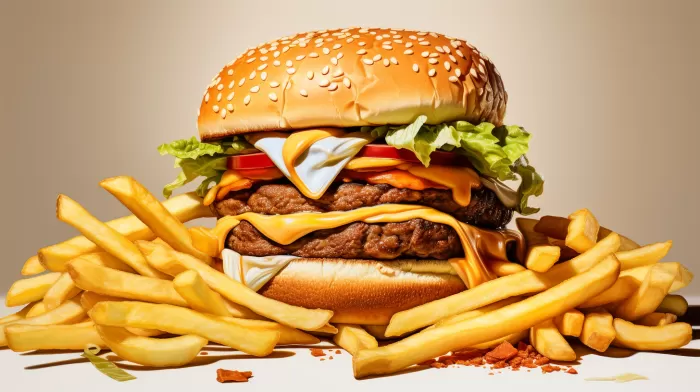There’s no denying that skipping meals has become a common practice among people trying to lose weight. If you’re one of them, your hectic lifestyle could be causing you to pile on the pounds, typically around your waistline. You see, after a long period of not eating, your brain tends to crave carbohydrates, leading you to consume more calories and binge on foods like bread and French fries.
The dangers of fasting or skipping meals
A study conducted at Cornell University highlights that individuals who haven’t eaten for 18 hours are more likely to indulge in high-carb foods. They often miss out on healthier food options like vegetables and end up consuming more calories than necessary. The study found that people who binged on fries after not eating for an entire day ate almost 50% more fries than others. They also consumed 20% fewer vegetables. Consequently, their overall calorie intake was about 20% higher than individuals who started their meals with vegetables.
When you’re extremely hungry after not eating for long stretches, your vulnerability to carbohydrate cravings increases significantly. This, in turn, can result in weight gain. A smarter approach would be to have more regular meals and snacks, staying out of the carb-craving danger zone.
How can you prevent carb cravings?
Here are some effective strategies to help you curb those carb cravings and maintain a healthy weight:
1. Eat frequent, balanced meals
Eating frequent, smaller meals throughout the day instead of just a few large ones can help stabilize your blood sugar levels and prevent extreme hunger, which often leads to carb-craving occurrences. By doing this, you’ll have more energy throughout the day and be more inclined to make healthier food choices.
2. Incorporate healthy fats into your diet
Healthy fats play a crucial role in hormone regulation, brain function, and weight management. Incorporating healthy fats such as nuts, seeds, avocado, and olive oil into your meals can help you feel fuller for longer, curbing those carb cravings.
3. Prioritize protein
Protein is an essential macronutrient that helps in muscle development, cell repair, and overall health. Including a lean protein source in each meal or snack can be a great way to stabilize blood sugar levels, control carb cravings, and support weight management. Some good protein sources include lean meats, fish, eggs, beans, or tofu.
4. Stay hydrated
Dehydration can often be mistaken for hunger, leading to carb cravings. By drinking enough water throughout the day (aim for eight 8-ounce glasses), you can help keep hunger at bay, maintain optimal health, and prevent mindless snacking.
5. Get sufficient sleep
Not getting enough sleep can wreak havoc on your hormones, leading to increased hunger and carbohydrate cravings. Make it a priority to get at least 7-8 hours of quality sleep each night. Consider creating a bedtime routine, establishing a regular sleep schedule, and optimizing your sleep environment to help improve your sleep quality.
6. Manage stress
Elevated stress levels can result in higher cortisol levels, which can trigger carb cravings and weight gain. Consider incorporating stress management techniques such as meditation, yoga, breathing exercises, or connecting with nature to help cope with stress and reduce cravings.
The bottom line
Skipping meals and fasting might seem like an easy way to lose weight, but in reality, it can lead to unhealthy food choices, excessive calorie consumption, and ultimately, weight gain. Instead, aim for a balanced diet featuring regular meals and snacks, incorporating healthy fats, lean proteins, and staying hydrated. Additionally, getting enough sleep and managing stress can be highly effective in curbing those carb cravings and maintaining a healthy weight.
By making these small changes to your lifestyle and diet, you’ll be better equipped to resist those carb-heavy foods that can derail your weight loss efforts. Reward yourself with better health and a more resilient body by focusing on a balanced, consistent approach to eating that keeps you out of the carb-craving danger zone.



